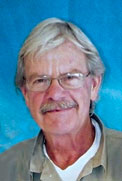 |
||||||||||||
|
Veterans Incarcerated Committee Report, May/June 2014 Flying While Standing Still BY KEN KUBINSKI
Military training, however, can help prisoners deal with authority. Veterans can take orders without attitude, even if those orders don’t make sense. Veterans wore the same uniforms, were subjected to the same rules and conditions, and were trained to survive many environments. But prisons are not equipped to diagnose PTSD or TBI, and prisoners are denied access to VA health care. Anxiety and other symptoms of PTSD make life much more challenging for veterans. Usually, however, help is available from other veterans. When I was first incarcerated nineteen years ago, the advice I received from VVA incarcerated chapter members was very helpful in my transition into the prison environment. But only a few years later the chapter was eliminated. In 1968 in Vietnam I received two head concussions and have suffered physical and cognitive symptoms ever since. Army doctors told me to suck it up; when I was released, VA doctors were unaware of the effects of PTSD. Didn’t even have a name for it. The self-prescribed therapy that I devised was to keep physically busy all the time—with work, hobbies, projects—just to feel normal and alleviate the constant anxiety that I lived with. In the mid-’70s I tried marijuana for the first time and found it very helpful. I told friends it saved my life, as it provided a transition from my working day to sleep. Little did I know that in 1994 I would be sentenced to prison on a marijuana conspiracy charge. Now I am a POW of another war with no clear mission. This time I am the enemy of the country I love and had sacrificed for. In prison I tried to employ the same “work therapy,” but there were many more challenges. I ran every chance I could, but that was not enough. First I needed to learn how to stay mentally fit and on top of the battle. Lesson 1: I requested the prison psychiatrist give me something to help with my sleeping disorder. One pill from him broke me for good. That pill, which was supposed to help me sleep, instead tormented me the entire night. I never accepted any of their medications again. Lesson 2: I watched my roommate die of medical neglect. When he went to sick call with a fever, he was given an appointment a week out. As his condition worsened, we begged the staff to make an exception and take him early. I had seen many buddies die in Vietnam, but none was as sad as seeing the look in Duffy’s eyes when he gave up all hope that these people would help. All I could do was watch helplessly. I realized my mental health—and my existence—depended on me and the networks I forged. I gathered information from friends and family on the outside. I learned about yoga. As PTSD became better understood, a friend from the VA kept me current—and I, in turn, passed on that information to other veterans. My sisters searched the Internet for ways I could treat myself. These activities gave me lots to think about and also gave me a purpose. I learned to become more independent, and I learned a lot about prevention. It felt good to be busy and to be intellectually engaged. I pursued help inside prison, too. Several departments can be of use. We should try them all and glean as much information as possible. The response from just one staff member can make all the difference. Often prisons have a pecking order, so it’s a good idea to check with inmates who have been around to find the best approach to gaining access to care and information. The Psychology Department primarily provides drug and alcohol addiction courses, group discussions, and movies. Only the most obvious aspects of mental illness are addressed. In all my years I have seen nothing to give me encouragement about treatment for PTSD or TBI. The Medical Department is for basic physical ailments. If a condition is more serious, the patient is taken to an outside hospital. But the problems associated with PTSD and TBI fall in between. There is a standard response to those complaints: If they don’t see it, they don’t record it. And if it isn’t recorded, it doesn’t exist. The Recreation Department is the most popular. They usually have the most programs, including some on health and prevention. A physical routine, a daily work out, or a running schedule helps keep me mentally focused. The daily practice of yoga also has many benefits. It is a good supplement to other routines and can still be practiced when activity is restricted. The Education Department is the easiest to access, but, other than for gaining a GED, is generally of little use. In many prisons there are only pretend educational programs: The counselors pretend to encourage inmates to take classes; the inmates pretend to take classes; and the Education Department pretends to educate. Everyone wins and no one learns. Sometimes overlooked is Chapel Services, where we can join the spiritual practice of our choice. This, too, can serve our mental health well, as it involves a sense of purpose and belonging. A spiritual experience can also be an important catalyst to a kind of neurological rewiring. Each of these departments can help us maintain our mental health, but we must depend on friends, family, and volunteer groups on the outside. I also highly recommend mentors—inside and out—who have your best interests at heart and can keep you grounded. If I were to define prison life in one word, it would be “restrictions,” beginning with the inability to go home. Although these restrictions affect our minds, whether we want them or not, they cannot control our minds unless we let them. The best way to avoid becoming mentally institutionalized is to keep mentally occupied with positive and constructive exercises. Stay focused and avoid prison delusions. Marking time is not good enough. We must make it a mission to stay mentally fit. There are many ways to use this time, and there are many programs we can pursue. One example: Neuroscientists are finding that for PTSD and TBI we can “rewire” damaged parts of the brain by problem-solving. Having an interactive purpose is good therapy. There are efforts to make restorative justice principles part of justice reforms that allow prisoners more input into programs. Veterans courts are succeeding in keeping men and women out of prison who shouldn’t be there. Many nonprofits will work with prisoners on these commonsense reforms. We can become the reform we want.
|
||||||||||||
|
|
||||||||||||
|
||||||||||||
8719 Colesville Road, Suite 100, Silver Spring. MD 20910 | www.vva.org | contact us |
||||||||||||









 The most important—and often overlooked—goal of the prisoner is to stay mentally healthy. The fulfillment of his wants and needs is dependent upon his psychological well-being. It’s not easy: The original mental disability that may have caused incarceration is compounded by depression, anxiety, and fear—not to mention distrust of authority and resentment about treatment by staff. All this can contribute to an unhealthy existence.
The most important—and often overlooked—goal of the prisoner is to stay mentally healthy. The fulfillment of his wants and needs is dependent upon his psychological well-being. It’s not easy: The original mental disability that may have caused incarceration is compounded by depression, anxiety, and fear—not to mention distrust of authority and resentment about treatment by staff. All this can contribute to an unhealthy existence.